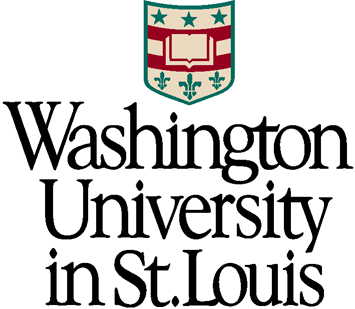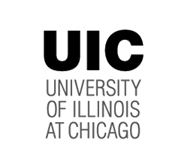Investigation in Pregnancy Associate Cardiomyopathy
| Status: | Completed |
|---|---|
| Conditions: | Cardiology, Women's Studies |
| Therapuetic Areas: | Cardiology / Vascular Diseases, Reproductive |
| Healthy: | No |
| Age Range: | 16 - Any |
| Updated: | 4/21/2016 |
| Start Date: | October 2009 |
| End Date: | August 2014 |
Immune Activation and Myocardial Recovery in Peripartum Cardiomyopathy
Peri-partum cardiomyopathy is a heart muscle weakness that occurs during or following
pregnancy. Research suggests that many initial heart injuries including viruses, pregnancy
and other unknown causes, can lead to a process of inflammation of the heart muscle which
can weaken the heart and cause cardiomyopathy. Why this process occurs in women during
pregnancy is not well understood and if it differs from those women who develop
cardiomyopathy from a virus is unknown. This study has been proposed to look at genetic
information (DNA) as well as the immune system (the body's response to fight off infections
and/or viruses) to find possible causes for the heart muscle damage that occurs in
peripartum cardiomyopathy.
pregnancy. Research suggests that many initial heart injuries including viruses, pregnancy
and other unknown causes, can lead to a process of inflammation of the heart muscle which
can weaken the heart and cause cardiomyopathy. Why this process occurs in women during
pregnancy is not well understood and if it differs from those women who develop
cardiomyopathy from a virus is unknown. This study has been proposed to look at genetic
information (DNA) as well as the immune system (the body's response to fight off infections
and/or viruses) to find possible causes for the heart muscle damage that occurs in
peripartum cardiomyopathy.
Specific Aim 1: Evaluate systemic immune activation as the etiology of PPCM. We will
determine a) the degree of immune activation in PPCM and b) the relationship of autoimmunity
to left ventricular dysfunction and time course of myocardial recovery, in 100 women
enrolled at 30 centers. Subjects will have blood drawn for assessment of autoantibodies, and
cellular immune activation at presentation, 2 month and 6 month postpartum, and will have
assessment of LVEF by transthoracic echo at presentation, 2 months, 6 months and 12 months
post partum. This aim will explore the hypothesis that more prolonged activation of the
cellular and/or humoral immune system is associated with greater likelihood of persistent
chronic cardiomyopathy.
In addition this aim will determine genetic and clinical predictors of LV recovery, and
evaluate racial differences in presentation, remodeling and recovery. This study will
evaluate the echo parameters of dysynchrony, diastolic function, LV size and volumes to
determine echo predictors of subsequent recovery. In addition racial differences in
presentation, remodeling and recovery will be investigated.
Specific Aim 2: Investigate frequency of myocardial injury or inflammation on cardiac MRI
and the ability of tissue characteristics to predict subsequent recovery of LVEF. Cardiac
MRI with gadolinium enhancement will be performed in 50 subjects with PPCM from Aim 1 at
presentation and repeated at 6 months post partum. We will test the hypothesis is that
subjects with more extensive injury (defined as % myocardium with late gadolinium
enhancement) will have less recovery at 6 months.
Specific Aim 3: Establish DNA and serum to facilitate future investigations of the
pathogenesis of peripartum cardiomyopathy. All subjects enrolled will have DNA, RNA from
peripheral blood and serum banked at entry. Serum will be repeated at 2 and 6 months post
partum.
determine a) the degree of immune activation in PPCM and b) the relationship of autoimmunity
to left ventricular dysfunction and time course of myocardial recovery, in 100 women
enrolled at 30 centers. Subjects will have blood drawn for assessment of autoantibodies, and
cellular immune activation at presentation, 2 month and 6 month postpartum, and will have
assessment of LVEF by transthoracic echo at presentation, 2 months, 6 months and 12 months
post partum. This aim will explore the hypothesis that more prolonged activation of the
cellular and/or humoral immune system is associated with greater likelihood of persistent
chronic cardiomyopathy.
In addition this aim will determine genetic and clinical predictors of LV recovery, and
evaluate racial differences in presentation, remodeling and recovery. This study will
evaluate the echo parameters of dysynchrony, diastolic function, LV size and volumes to
determine echo predictors of subsequent recovery. In addition racial differences in
presentation, remodeling and recovery will be investigated.
Specific Aim 2: Investigate frequency of myocardial injury or inflammation on cardiac MRI
and the ability of tissue characteristics to predict subsequent recovery of LVEF. Cardiac
MRI with gadolinium enhancement will be performed in 50 subjects with PPCM from Aim 1 at
presentation and repeated at 6 months post partum. We will test the hypothesis is that
subjects with more extensive injury (defined as % myocardium with late gadolinium
enhancement) will have less recovery at 6 months.
Specific Aim 3: Establish DNA and serum to facilitate future investigations of the
pathogenesis of peripartum cardiomyopathy. All subjects enrolled will have DNA, RNA from
peripheral blood and serum banked at entry. Serum will be repeated at 2 and 6 months post
partum.
Inclusion Criteria:
- Patient of 16 years of age or older
- Diagnosis of peripartum cardiomyopathy
- Presentation for enrollment no earlier than one month pre-term and no later than two
months post partum.
- LVEF less than OR equal to 0.45 by echocardiogram
Additional inclusion criteria for MRI substudy:
- Must be post partum
- Participant is not breast feeding or is willing to forego breast feeding for 24 hours
post gadolinium.
Exclusion Criteria:
- Previous diagnosis of cardiomyopathy, valvular disease or complex congenital heart
disease
- Evidence of CAD (>50% stenosis of major epicardial vessel or positive non-invasive
stress test)
- Previous cardiac transplant
- Chemotherapy or chest radiation within 5 years of enrollment
- Evidence of ongoing bacterial septicemia (positive blood cultures)
- Medical, social, or psychiatric condition which limit the ability to comply with
follow-up (Example: alcohol or drug abuse)
Additional Exclusion for MRI Substudy
- GFR < 30mL/1.7 m2 by MDRD equation
(http://www.kidney.org/professionals/kdogi/gfr_calculator.cfm)
- Currently breast feeding or unwilling to forego for 24 hour period post gadolinium
- Implanted devices (cochlear implants, pacemakers, defibrillators, infusion pumps,
nerve stimulators, etc)
- Cerebral aneurysm clips
- Swan Ganz catheter or intra aortic balloon pump
- Ocular metal or metallic splinters in the eye
- Pregnant women
- Metal shrapnel or bullet
- Allergy to Gadolinium
We found this trial at
29
sites
Johns Hopkins The Johns Hopkins University opened in 1876, with the inauguration of its first...
Click here to add this to my saved trials
Cleveland Clinic Cleveland Clinic is committed to principles as presented in the United Nations Global...
Click here to add this to my saved trials
Duke University Younger than most other prestigious U.S. research universities, Duke University consistently ranks among...
Click here to add this to my saved trials
Baylor College of Medicine Baylor College of Medicine in Houston, the only private medical school...
Click here to add this to my saved trials
University of Southern California The University of Southern California is one of the world’s leading...
Click here to add this to my saved trials
1601 Northwest 12th Avenue
Miami, Florida 33136
Miami, Florida 33136
(305) 243-6545

University of Miami Miller School of Medicine The University of Miami Leonard M. Miller School...
Click here to add this to my saved trials
1211 Medical Center Dr
Nashville, Tennessee 37232
Nashville, Tennessee 37232
(615) 322-5000

Vanderbilt Univ Med Ctr Vanderbilt University Medical Center (VUMC) is a comprehensive healthcare facility dedicated...
Click here to add this to my saved trials
Univ of Rochester Medical Center One of the nation's top academic medical centers, the University...
Click here to add this to my saved trials
Washington University Washington University creates an environment to encourage and support an ethos of wide-ranging...
Click here to add this to my saved trials
Click here to add this to my saved trials
University of Maryland As a globally-connected university offering a world-class education, the University of Maryland...
Click here to add this to my saved trials
Click here to add this to my saved trials
Click here to add this to my saved trials
Click here to add this to my saved trials
Univ of Illinois A major research university in the heart of one of the world's...
Click here to add this to my saved trials
Click here to add this to my saved trials
Click here to add this to my saved trials
500 University Dr
Hershey, Pennsylvania 17033
Hershey, Pennsylvania 17033
(717) 531-6955

Penn State Milton S. Hershey Medical Center Penn State Milton S. Hershey Medical Center, Penn...
Click here to add this to my saved trials
University of Kentucky The University of Kentucky is a public, land grant university dedicated to...
Click here to add this to my saved trials
Click here to add this to my saved trials
Click here to add this to my saved trials
Click here to add this to my saved trials
Newark Beth Israel Medical Center Newark Beth Israel Medical Center, a regional care, teaching hospital...
Click here to add this to my saved trials
Thomas Jefferson University We are dedicated to the health sciences and committed to educating professionals,...
Click here to add this to my saved trials
University of Pittsburgh Medical Center UPMC is one of the leading nonprofit health systems in...
Click here to add this to my saved trials
Click here to add this to my saved trials
Click here to add this to my saved trials
Stony Brook University Medical Center Stony Brook Medicine expresses our shared mission of research, clinical...
Click here to add this to my saved trials
Click here to add this to my saved trials













